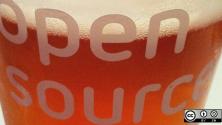Witness the rise of open hardware! Last year, I wrote about how now is the time to start seriously thinking about a career in open source. Next, the UN backed open source, and earlier this year, the U.S. National Science Foundation began major funding for open source platform development. Now the Open Source Hardware Association (OSHWA) has teamed up with the Sloan Foundation to fund Open Hardware Trailblazers Fellowships.
These Fellowships last one year and pay $50,000 or $100,000 to individuals to tackle some of the latest issues for integrating open hardware deep into academia. They want to connect a peer cohort of academic leaders pushing open hardware into academia and create a library of resources representing best practices in open source hardware in academia. My own work has shown that academics are willing to embrace open source with open arms. We surveyed American academics and found a supermajority (86.7%) of faculty respondents indicated a willingness to accept open source-endowed professorships.
Open hardware is already going strong in academia, with three journals dedicated to publishing on the topic: HardwareX, the Journal of Open Hardware, and The Journal of Open Engineering. In addition, many other publications like Designs and PLOS One frequently publish open hardware content. The Gathering for Open Science Hardware (GOSH) continues to bring like minds together, and open hardware's use in academia has become an area of study in and of itself. Notably, of course, open hardware decimates proprietary offerings on economic costs. As a general rule of thumb, subtract 90% from the price tag. There is a lot more money in the system to fund open hardware in academia as funders have noticed 100-1000 percent or more for the return on investment (ROI) of open source development after only a few months.
Sadly, many academic institutions are mired in the intellectual property dark ages and are not yet aware of open hardware techniques, and do not actively support their adoption. OSHWA wants to change that and hopes their Fellowship program will pave the way for open hardware in academia by setting up a network of advocates.
The Open Hardware Trailblazers Network is designed to:
- Recognize existing leaders
- Give those leaders tools to expand their work
- Encourage the leaders' institutions to recognize and value their work
- Identify and accelerate the development and dissemination of information about developing open hardware within the context of universities
- Leverage diversity, equity, inclusion, and justice initiatives to broaden the community of open hardware practitioners at universities
- Pair leaders with industry mentors to share knowledge when applicable
All Fellows will attend regular virtual meetings with their Fellowship cohort, including two in-person meetings with travel costs paid for by OSHWA. Fellows will be introduced to mentors or collaborators from the industry with relevant expertise. The Fellowship will build a beneficial network to share work being done, ask questions, and gain feedback from each other.
Example questions that may be answered as part of the Fellowship include, but are not restricted to:
- What documentation practices help academics share and disseminate their open hardware projects?
- What makes hardware more replicable in academia, and what is missing from current documentation standards?
- How do various fields of study approach problems such as licensing around open hardware in their departments, and what are common threads seen at other academic institutions?
- What is the business case for open hardware in academia, and how has open hardware developed in academia thus far?
That last one is particularly interesting to me, so drop me a line if you would like to collaborate on this in or outside of the Fellowship.
If you are in the U.S. and interested in one of the eight Fellowships, check out the Request for Proposals here!
Good luck!







Comments are closed.